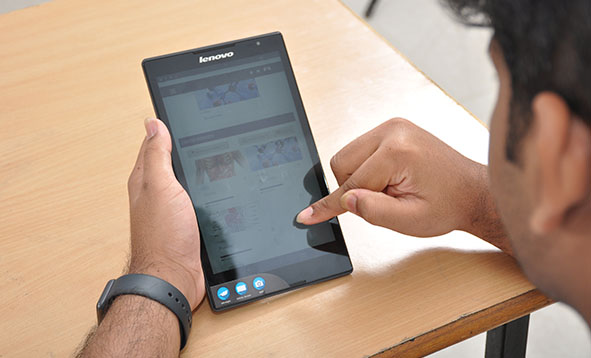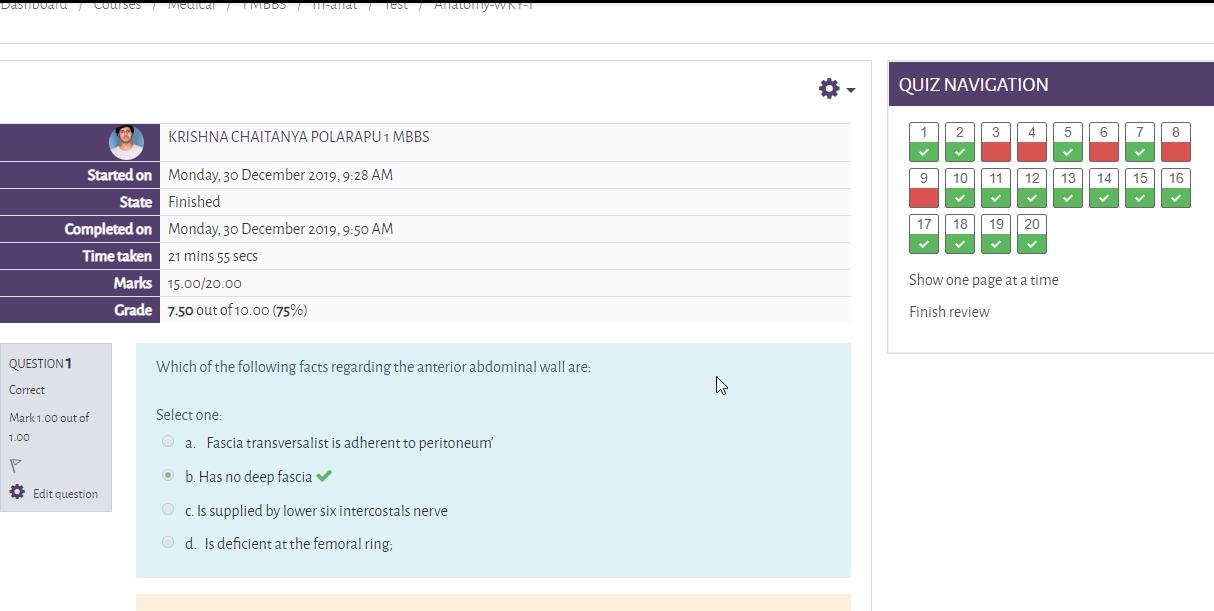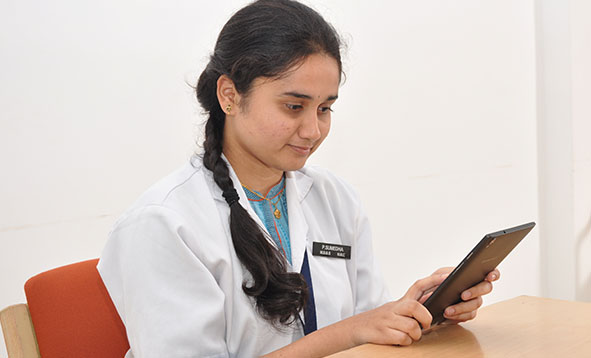About Us
-

-

-

- Medical Education Unit consisting of e-learning development team is constantly working with the creation of the e-learning material. Institution is able to select teachers for the monitoring of the online e-content. Teachers with the following qualities are involved. Teacher should be open to new approaches to learning and must be committed to e-learning methods. They must exhibit creative and expressive mind in what they do and write. Importantly, these teachers should empathise with students without seeing them. Such team is formed for the e-learning project at Narayana Medical College.
- The team consists of the following members:
- Dr S P Rao - Dean
- Dr. L. Hema - Professor & HOD - Anatomy
- Dr. K.N. Maruthy - Professor & HOD Physiology
- Dr. R. Viswa Kumar - Professor & HOD Biochemistry
- E-learning is essential to further development in medical education in India. The increasing number of students in the classroom, lack of sufficient number of patients in the wards for clinical demonstrations, neglect of individual attention, and students inclination to learn from other sources are the driving forces for the emphasis on e-learning. Despite the laudable achievements elsewhere in the world, India and in particular Andhra Pradesh is still struggling to bring in e-learning into the mainstream Medical Education. Though there are advances and developments in e-learning, there are no active initiatives to utilize the e-learning opportunity to enhance medical student learning. It appears that there are many unresolved issues related to the effectiveness of online medical education in India remain. Three particularly interrelated thorny problems are
- (1) access
- (2) quality
- (3) accreditation.
- A deplorable lack of alignment persists in India online medical education courses among the critical elements of the learning environment, viz., higher-order outcomes, specific objectives, content, instructional design, learner tasks, teacher roles, technological affordances, and assessment. Continuing to use e-learning to deliver the same instructional methods as traditional medical education in India will ultimately fail because “just as good” as what exists is not acceptable in light of the goals and needs of 21st Century learners.
- The blended education initiates started in 1985 through Indira Gandhi National Open University (IGNOU) are still not popular. The learning materials available are dull and particularly not attractive and suitable for the present generation Z students. Narayana Professional Institutions realized the potential of e-learning in medical education. A number of strategies are discussed by the college to realise the goal of imparting quality medical education goal without hurting the sentiments and feelings of the teachers. It is well known that effective and sustainable eLearning endeavour needs to be implemented strategically by considering the following issues: e-Learning policy of the University & the institute management, availability of suitable technologies and the financial burden, User friendly aspects of technology adoption, continuous training and improved ICT infrastructure. Therefore, Narayana Professional Colleges deployed eLearning technologies and strategies in the following phases:
- • Awareness creation to the faculty and students;
• Sensitization of ICT personnel in e-learning software and their familiarisation
• Development of policies on ICTs, eLearning and institutional repository;
• Selection and implementation of appropriate eLearning technologies for course management system, digital repository, Mobile accessibility, and mapping of teachers and students and assigning teacher to student(s)
• Training to change mindset and improve skills of ICT technical staff, students and faculty. - Narayana Professional Institutions strongly believe in converting the listening classrooms into Thinking Classrooms.
- There are two primary goals for online Medical education. One is increasing access to varied relevant medical literature which can promote logical thinking and reasoning in the students’ mind. The other is enhancing the quality and outcomes of medical education. Improving the quality and outcomes of medical education is challenging to achieve. However, familiarizing the student with e-learning will promote life long learning skill among them. E-learning should add to the profile of generation Z that achievements on to specific knowledge and skill competencies needed for success in the 21st Century.
- The teaching faculty inculcated the habit of rather than asking, “How can I teach this?” ask, “How can my students learn this?”
Our motto is Think
